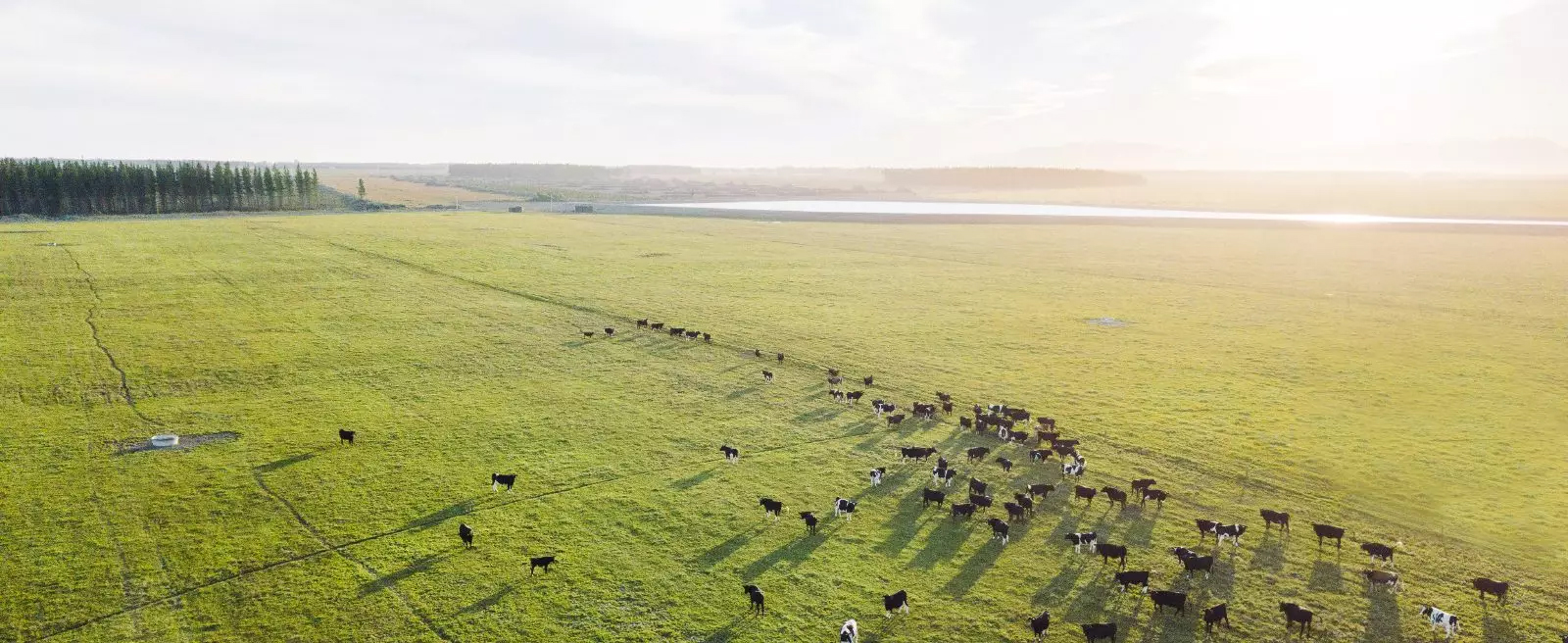‘It could become the future of dairying’
Jun 13, 2023

Ngāi Tahu Farming is spearheading the largest single farm-system regenerative farming trial in Aotearoa with a view to reducing water use, carbon emissions and nitrate leaching.
The seven-year trial, conducted in partnership with Ngāi Tūāhuriri and the Ministry for Primary Industries’ Sustainable Food and Fibre Futures fund, began in August 2022.
Named Te Whenua Hou Te Whenua Whitiora – The New Land, The New Horizon, the $11.5 million programme aims for a 20 percent reduction in water usage, greenhouse gas emissions and nitrate leeching by 2030.
Ngāi Tahu Holdings Farming and Forestry General Manager Will Burrett is “very excited” about the trial, which in essence is about finding more resilient and ethical practices.
He explains that the practices of two dairy farms side-by-side in North Canterbury will be compared and assessed. One, a 286-hectare farm, will use regenerative farming practices while the adjacent 330-hectare farm will use conventional methods.
“One could become the future of dairying,” Will Burrett says.
The environmental, financial, and social impacts of each practice will be compared over seven years, seeking to prove the impact of regenerative farming practises across the board.
“Our hope is that the regenerative farm will show a substantial and positive difference in environmental impact – while also providing a working environment that is beneficial for our animals and kaimahi, and potentially something the wider sector can adopt and replicate at scale,” Will Burrett says.
The programme will measure the impact of more diverse pasture species, reduced synthetic fertiliser, and longer round-length (grazing period). In addition, it will investigate the overall impact on the nutritional properties of the product coming off the farms – and more importantly, how regenerative processes can improve the farm’s soil profile.
Nitrate loss at the root zone into the groundwater system will be measured using 12 underground devices called lysimeters. Although software modelling suggests there will likely be a 20 percent reduction in nitrate leeching, this trial will use the advanced technology available on site to measure the exact impact.
“We want to really grow our understanding of the opportunities to farm in a more resilient and ethical way in Aotearoa,” Will Burrett says.
Positive environmental impacts are not the only aspects of the programme being monitored. Other desired outcomes include maintaining productivity levels while improving animal health and wellbeing, as well as improving kaimahi (staff) health and wellbeing across engagement, sleep and fatigue, task diversity and productivity.
Cow halters will measure a significant amount of data points every minute, to understand how the two different systems are affecting underlying animal health, including their reproductive health. Kaimahi (staff) will wear sleep rings to understand if there’s any changes in human wellbeing that need to be taken into consideration between the two systems.
“Supporting farmers with quality insights of an alternative system at scale and the outcome it can have on total farm performance is vital to help define change. This could, one day, positively influence the way we farm across the country,” Will Burrett says.
Baseline measurements began in the latter half of 2022, with operational measurements starting 1 July 2023.